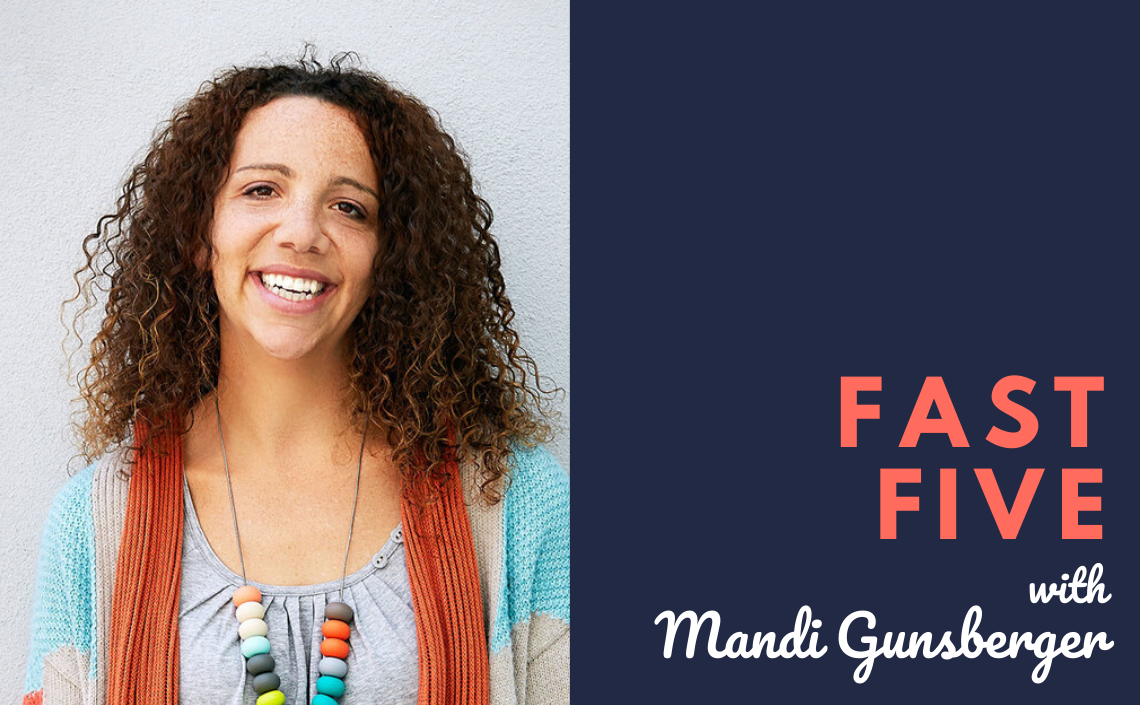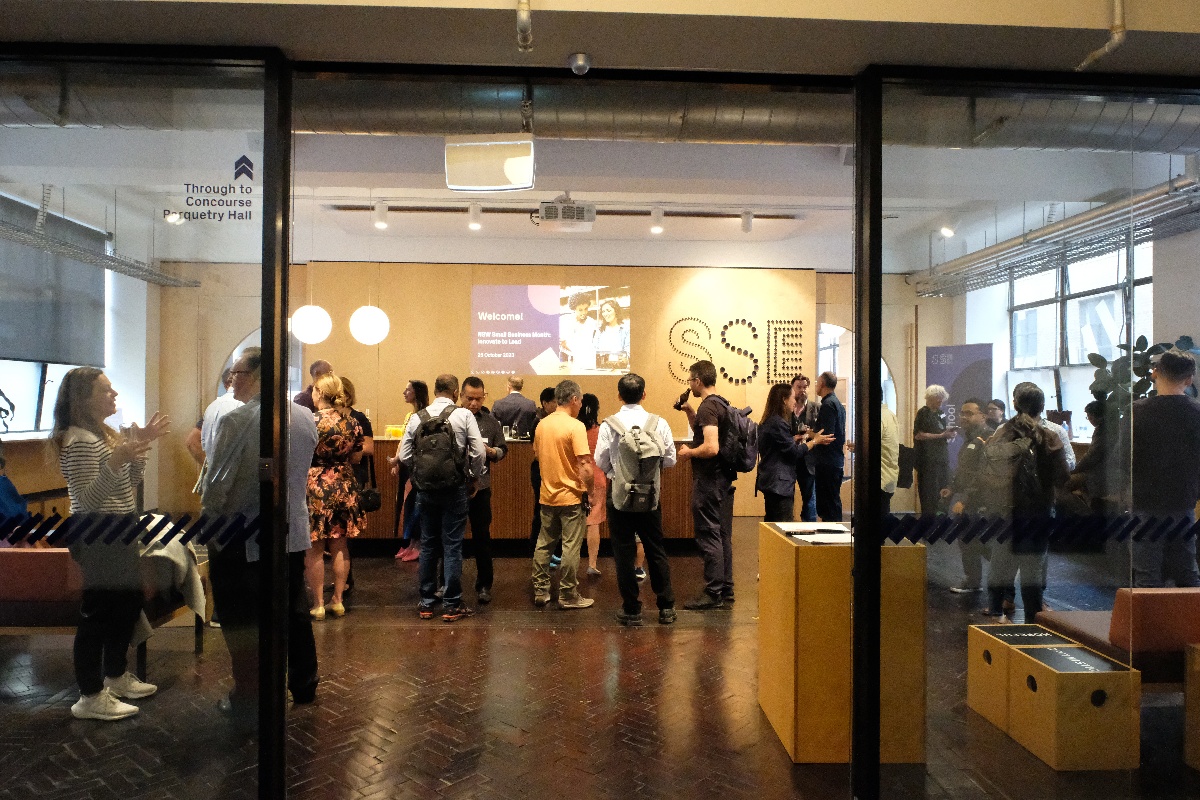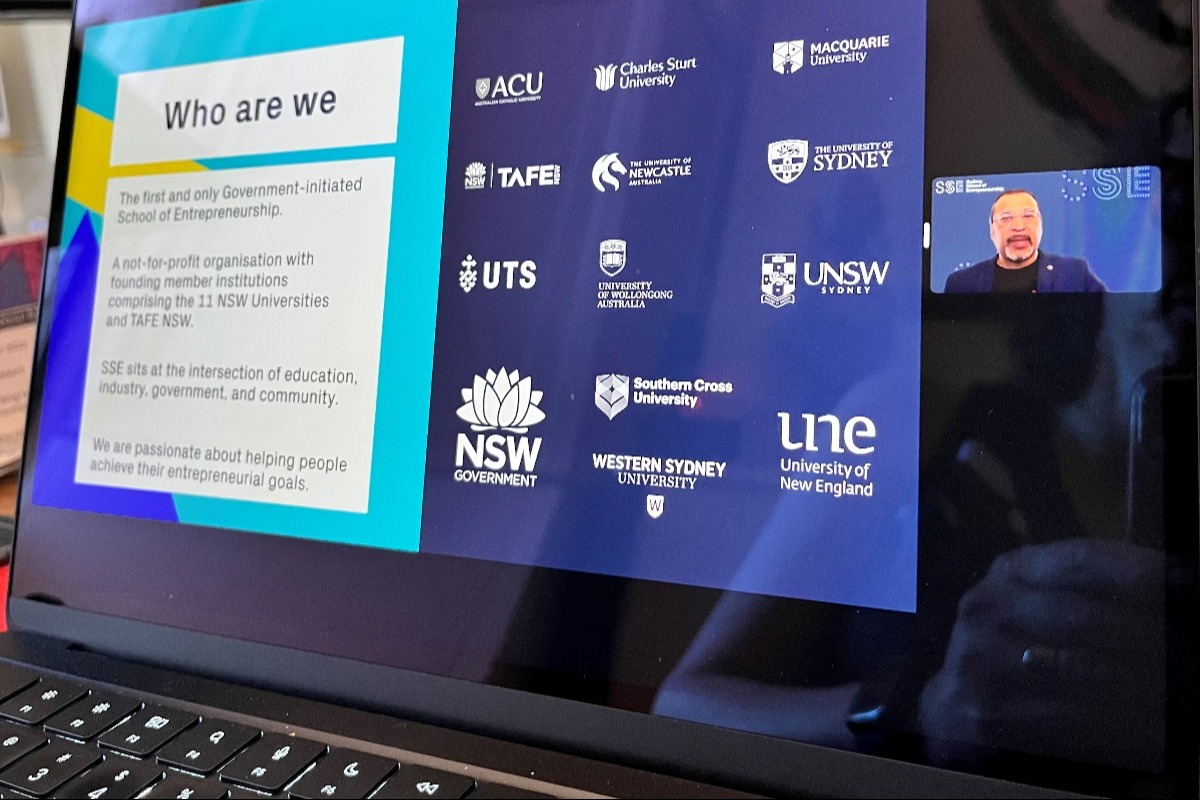Stories
Panel event: AI is the future, but keep a human in the loop
In celebration of NSW Small Business Month 2023, SSE held a free panel discussion and networking event – How to Innovate to Lead with Industry 4.0 for Small Business Resilience – at its Ultimo HQ on Wednesday 25 October.
Hosted by Co-Founder & Design Principal at NOA The Brand and SSE Training Facilitator, Martin Boehnel, three expert panellists generously shared their valuable insights into the small business and startup ecosystem and what it takes to not just survive in business in 2023, but to thrive.
In the age of AI, it’s essential for small business to lean into technological change and build resilience through innovation, so the panel was designed to explore some of the central themes surrounding (and challenges facing) new and early-stage startup founders today in the face of extraordinary tech advancement.
Small business and entrepreneurship matters
97.3% of all business (around 2.5 million) in Australia are small businesses. Small businesses employ 1.8 million people in NSW alone, which accounts for almost half (45%) of the NSW private sector workforce.
Entrepreneurialism is so more just than starting a business, it’s a ‘whole of life’ mindset. So how small business owners and founders feel about, approach, and integrate new technology matters, a lot.
What are the emotional characteristics needed to embrace Industry 4.0?
Panellist Luke Fabish, a software engineer, 20+-year tech industry veteran, and Co-Founder of Digital Village, a 300-strong network of tech experts, reflected that it’s pretty ‘par for the course’ that business owners have to learn and cope with their own emotions on a daily basis.
“We also need to manage our expectations of technology,” he said. Because we can’t be 100% sure how anything is going to work out, we need to ask ourselves, “’How can I test and learn?’ from x or y technology? How can we start small, scale that out, and build in successes as we discover them?”
Dr Joanna Jakovich, CEO and Co-Founder of Humanacy (a new digital-physical puppet platform that nurtures human skills in children ages 3-7) agreed. “There’s a sense of courage,” she said, “that [as small business owners] we bring to everything that we do.” She also stressed the importance of ‘embracing failure’, and working hard to build quality relationships within the team so everyone feels comfortable with each other.
Resilience was a recurring theme throughout the discussion. Founder of Pioneera, an AI platform used to identify and assist with early intervention of workplace burnout, Danielle Owen Whitford, reminded us all, “Be kind to yourself, and recognise that if you’re experimenting, and you’re curious about experimenting, you’re much more likely to get an outcome that’s useful.
“It probably won’t be the outcome you were expecting, but being curious about how you can use [technology] really helps build resilience.”
How can we leverage technology to innovate with limited resources, and how important is a creative mindset?
“Innovation really happens only under the forces and pressures of some form of limitation,” Joanne explains, highlighting that it’s the creativity that comes from having limited resources that so many big corporates try to imitate – that is, what startups do well.
“Limitations are great things to have!” she said. “Small business, a startup, offers you this amazing bed, or sandpit, with no expectations to have to worry about. Innovating is coming right back down to first principles with a problem, or in an area.”
As for building a creative mindset, which Joanne and her team have had to do with an almost-wholly remote, global team, it’s meant “coming back to basics – needing that psychological safety amongst team members – it’s a challenge and messy, but it’s ultimately really rewarding, and gives you the freedom to be creative and bold in your business.”
It was back to basics for Luke and the team at Digital Village, too. “When we think about being creative with technology,” he explained “we tend to expect it to be ‘amazing’. But the breadth of our creativity expands well beyond that, whether it’s changing workflows or doing our ops, especially when we are resource-constrained, being it really forces you to be creative, think ‘outside the box’ in looking for solutions.”
“Creativity and innovation actually sit very nicely together,” Danielle added, “and technology provides a good opportunity to do that.”
“Creativity helps us push our own mental boundaries, too. ChatGPT is a perfect example of a technology that can help you expand your mind.”
What impact is AI having on small business?
Regarding AI’s impact on small business, our panellists all agreed – they’re exciting times, but best proceed with caution.
“AI is allowing us to do business globally, communicate asynchronously – and technologies like ChatGPT allow us to move a lot more quickly and efficiently through processes and systems [than previously].”
It makes our workflows faster and more efficient, which allows us to focus on the [human] qualities we bring to our unique roles in the business, like our conversations with customers, decision making, critical and cognitive thinking.
“Keep a human in the loop,” Joanne cautioned, despite her great excitement about our unknown futures. “Look at and think critically about the decisions this tech is making for you. Are they equitable and fair? What biases are ingrained in results and responses?”
“We have no idea how immensely this tech will fundamentally transform business and life,” she concluded, so “get in there as early as possible, use as much as possible, become as fluent as possible, to ‘grab the bull by the horns’ in these early days.”
Luke also encouraged us not to fear tech, but to keep a close eye on the business model of any platforms we’re adopting. “What’s the business model of the technology you’re giving your data and information to? These early-stage AI companies all have investors, all of whom are going to be expecting a many-fold return on their investments.”
Business owner or not, it’s each one of us as consumers who are responsible for holding these companies responsible for legal and ethical matters into the future.
NSW Small Business Month takes place each October and is an invitation to small businesses across NSW to put aside some time to work on their businesses, attend events that align with their special interests, and meet and network with other small business owners.
Browse other SSE programs here.
Want to connect or collaborate with any of our panellists?
Danielle Owen Whitford
Dr Joanne Jakovich
Luke Fabish
Event photo gallery
Related Stories

Small Business Spotlight: The Site Coach


